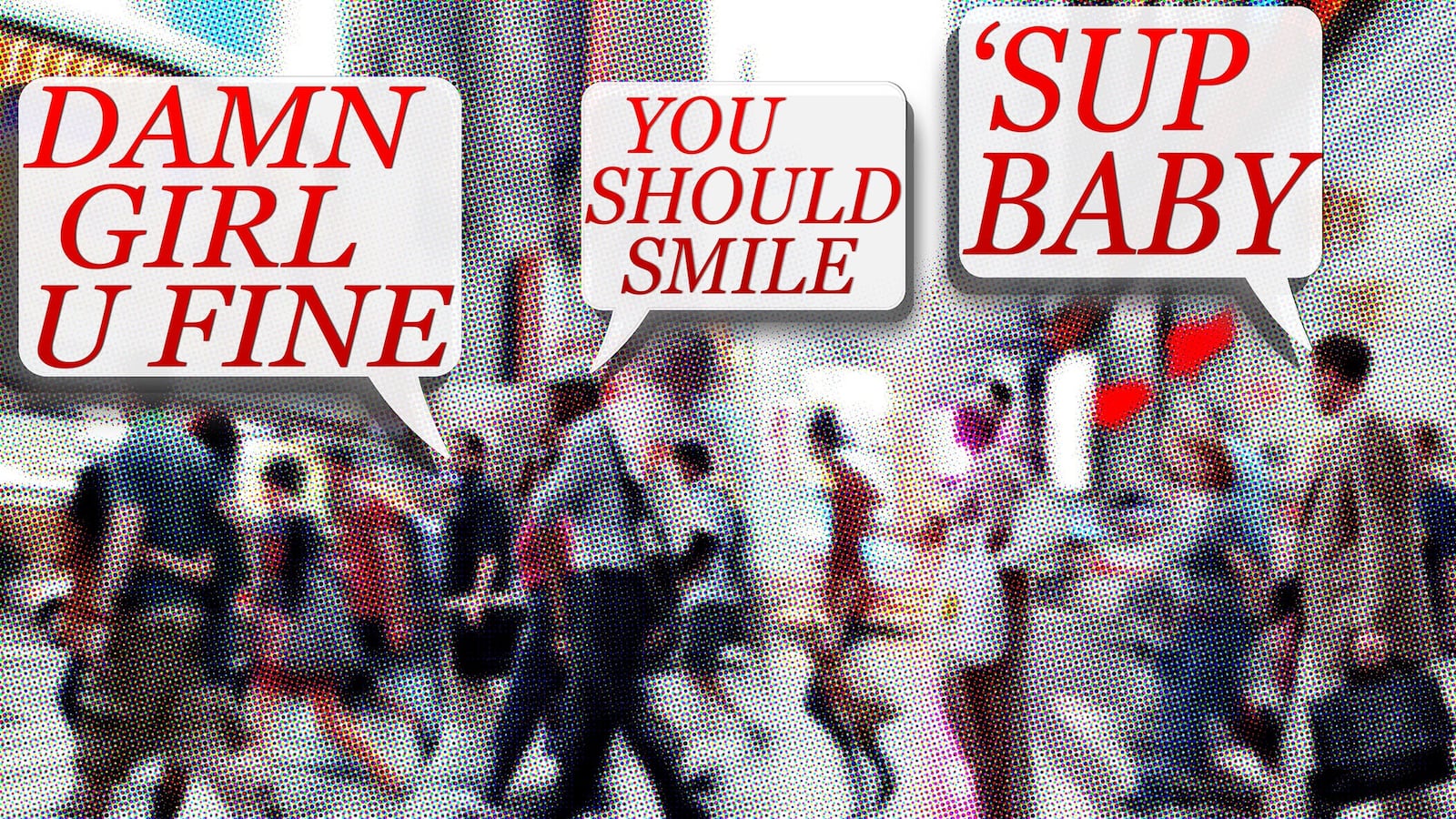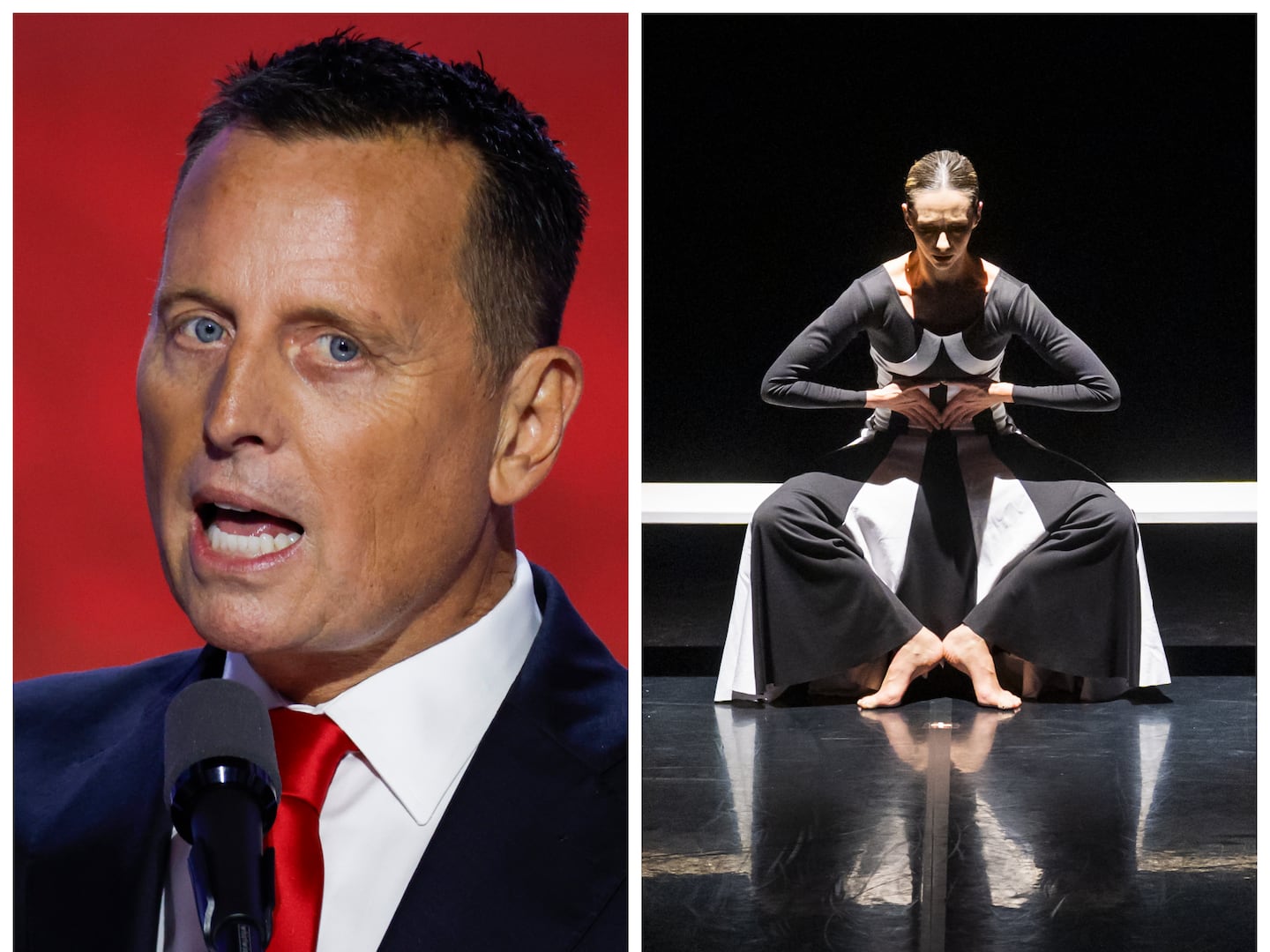It has been three weeks and 1.9 million views since I published the Cards Against Harassment YouTube channel. I’ve told the origin story of my project so many times now that it feels like it’s been worn down to a dull nub.
The cards started as a personal project to insert a sliver of dignity and my particular brand of snark back into a type of interaction that had historically left me feeling voiceless. They were not the contrivance of extended planning or a master viral plan; they are not a reflection that This Issue Above All Issues Rules My Passion, and they were not designed as a solution for street harassment. I whipped them up in the course of an evening with the little Photoshop skills I have, and I made the PDFs available for some friends who wanted their own set.
It’s worth noting up front that the concept of handing a card to a person whose behavior is unwelcome is far from novel. Since printing my cards, I have learned that Boston’s chapter of the anti-street harassment organization Hollaback has been making “Creeper Cards” since at least 2013, and looking even further back, in 1986, a talented Brooklyn-based artist named Adrian Piper created “Calling Cards” to respond to the racism and unwanted romantic advances she encountered in her daily life.

The YouTube videos followed the cards. My worst experiences with street harassment predate my filming: There was the guy two years ago masturbating near me in a Party City while I bought Halloween decorations. Then there was the guy last year who persuaded another male bus passenger to switch seats with him so he could sit closer to me as he propositioned me (thanks a lot, cowardly male passenger enabler.) But this summer’s videos were intended merely to document my average commute for a period of time, to show a few skeptical male friends how common it is for strange men to comment on or react in a sexual way to an unknown woman when she is unaccompanied in public spaces.
This right here touches on a recurring misconception belched forth from the sulfuric bowels of YouTube every few hours when one of my videos is viewed in isolation: no, ButthurtDBag69, I didn’t set out to only film certain types of interactions, or to “make a big deal” out of a mild interaction. None of the recent videos are titled, “My Life Is So Hard; Look At This Particularly Terrible Thing That Happened To Me.” My goal was simply to shine some light on a cultural phenomenon I consider highly gendered and worth questioning.
Buzzfeed turned the volume up on my cards and videos a few days after the YouTube channel launched. If I had to hypothesize why the story went viral at all, I would attribute it to the farcically unapologetic sexist remarks some of the men said on camera. I also suspect some people watched the videos in hopes that they would see a mouthy woman get punched in the face. No such luck, sorry, bros.
But viral it went, and over the past few weeks, I’ve tried to remind media outlets that the Cards Against Harassment project should not be a significant part of the conversation surrounding street harassment because the confrontational project (and yours truly) are ill suited to that role. As a wealthy, cis, white woman living and working in safe spaces, the type of harassment I experience, and the response that feels appropriate and safe for me, is not representative of the problems faced by people who don’t benefit from systemic privilege or protections. Those experiences are more appropriately addressed by the great women and organizations already exposing (no pun intended, gross) these issues: @FeministaJones and the #YouOKSis movement, Stop Street Harassment, Hollaback, @EverydaySexism, Tatyana Fazlalizadeh. The list goes on.
But since I’m here, I have attempted to gather up some of the nuggets of wisdom flung at me (WARNING: Some such nuggets resemble actual turds) during this experience:
Burden of Proof
An untrained observer following articles on Cards Against Harassment could be excused for believing the Internet is full of licensed defense attorneys and oracles blessed with a preternatural third sight. I have seen thousands of emails and comments from strangers that authoritatively describe my manner of dress as if they have seen it themselves, and thousands more that say until I “prove” what I was wearing at any particular moment in time they are unable to reach an appropriate conclusion and are left to assume “the worst.”
If I am dressed “modestly,” then they can perhaps generate a modicum of understanding. If I am dressed in a “whore uniform,” though, it’s no surprise I am treated like a whore. (“Whore uniform,” as far as I can surmise from these communications, can include any combination of blouses, tank tops, dresses, skirts, pants, workout clothes, bras, no bras, exposed ankles, a human ass, breasts of any size, shape, or number, and potentially hair, teeth, or skin.)
These inquiries do not only come from the charming laypersons of the Internet, but from media outlets as well: No matter how supportive media producers have sounded in courting me to discuss this story, they have still asked me, and my employer, on and off-camera, again and again, what was I wearing, and whether I was dressed “provocatively,” apparently ignoring that if “provocative” is code for “allowing someone to surmise your body shape without difficulty,” they are already buying into the idea that a woman’s bone, muscle, and fat distribution must either be obscured or deemed cause for harassment.
Context Is Hard for Some People
By their very nature, the cards presuppose that they are only being handed out after a person has already been made uncomfortable, and then chooses to convey that message. I did not publish the cards to push them on women as a preferable method for addressing cold approaches by men—in the event of welcome attention, there’d be no need for a card, and in the event of unwanted attention, ignoring a comment and getting to safety is often the best option. Nor are the cards designed to act as educational pamphlets being handed to every man to direct their behavior in various social situations: They only address the narrow context of unwanted attention by a stranger after it’s happened.
And yet, I am contacted every day by people who are aghast that I am promoting the dogma that every time a man comments on a woman’s appearance, he is a sexist monster. Then there are people who think that, by simply sharing this tiny snippet of my life and it happening to go viral, I am declaring that war and famine and economic disparity and all manner of other real problems are unimportant, and I walk through life obsessed with potential causes of victimization. (I wonder if people who post cute cat videos that go viral get the same nonsense, i.e. “You attention whore, you want the whole world to care about your goddamn kitty because what, Gaza doesn’t even matter?? And what about police brutality, and education gaps? Shut the hell up and GET OVER YOURSELF.”) If you fall into the camp of people who send this garbage: Take a minute and realize that the amount of media circulation a given story gets does not reflect the original creator’s estimation of its importance.
Brad Pitt’s Dick Is Apparently a Magic Wand of Complete Immunity
The collective Internet wisdom is that Brad Pitt, Ryan Gosling, and Adam Levine apparently represent the pinnacle of panty-exploding male hotness and have a free pass to treat women however they choose. The amount of emails and comments I’ve received from angry dudes who insist that if one of these three aforementioned men harassed me I would “be begging for it” is perplexing. First: Have you guys never even HEARD of Joe Manganiello or Idris Elba?? And second, no: If the first words a movie star said to me on the street were that he could smell my pussy, I would not reward him with said pussy. And third: If your biggest concern with my project is that mutual attraction may dictate differences in comfort levels, how does that undermine the message that men should be cognizant that their unsolicited attention can be unwanted?
YouTube and Twitter Have Problems
Today’s social justice issues play out just as much, if not more, on social media platforms as they do on city streets. Yet, the constitutional protections and mechanisms in place for live protest and advocacy do not apply to privately owned commercial platforms like Twitter and YouTube. I was reminded of this when several of my videos were removed from YouTube for containing “pornographic content,” even though they plainly do not. The appeals process for such removal is a few checkboxes and a “submit” button. When I later received notice that YouTube had upheld the removal of a video even after closer review, I had no further channels to pursue other than emailing a direct contact at Google to rattle the cage. If my project had not already gone viral, I doubt I would have gotten a response.
As for Twitter, there is no question that it is a platform that lends itself phenomenally to advocacy, but it has serious problems when it comes to harassment and abuse. If a Twitter user threatens rape or murder but then deletes those tweets, there is no mechanism to report the user as abusive, even if you have a screenshot or notification email proving it was sent (see the recent #askcostolo conversation surrounding these flaws.) While we’re on that subject, guys, stop threatening gendered abuse when you’re mad about women daring to ask for better treatment. I don’t work in PR but here’s some free advice: It is incredibly ineffective for your messaging when your main response is: “How dare you say men suck I’ma come rape you so hard!”
For All Its Vitriol, the Internet Is a Great Place to Learn and Make Friends
I hate to end on a saccharine note but I also don’t want the comically negative parts of this experience to overshadow the incredible support, creativity, energy, humor, and solidarity that has been sent my way by people I would have never had the opportunity to meet in non-Internet life. I’ve been reminded that reasonable, fun people far outnumber cretins, and even some cretins are subject to conversion (one guy sent a mean-spirited email about how ugly I must be on the inside and how stupid I am for not taking a compliment, and when I responded with an explanation of the broader social issues underlying the project and reminded him that a likeable, sarcastic human being was on the other end of his shit flinging, he sent a sincere apology and messages of support).
I’ve also received a lot of valuable criticism on how street harassment advocacy could and should be done better to be inclusive and sensitive to intersectional nuances, and I’ve received helpful recommendations of changes to design and word choice elements that have resulted in improvements to the site and the cards. No matter how much I adapt to this feedback, however, it bears repeating: The cards and videos reflect my real-life experience but there are a myriad of people for whom confrontation is simply not an option.
As for what’s next, my short-term plan is to respond to emails in the backlog, release some cards that have been specifically requested by others, direct attention back where it appropriately belongs (the organizations and advocates I identified further up), and get together for some strong drinks with some of the great men and women in Minneapolis who have connected with me over the past few weeks. I am kicking around a few video concepts that would turn the camera on sexist ideologies rather than documenting interactions on the street, but those could take a while. In the meantime, you can find me on Twitter @CardsAgstHrsmt.






